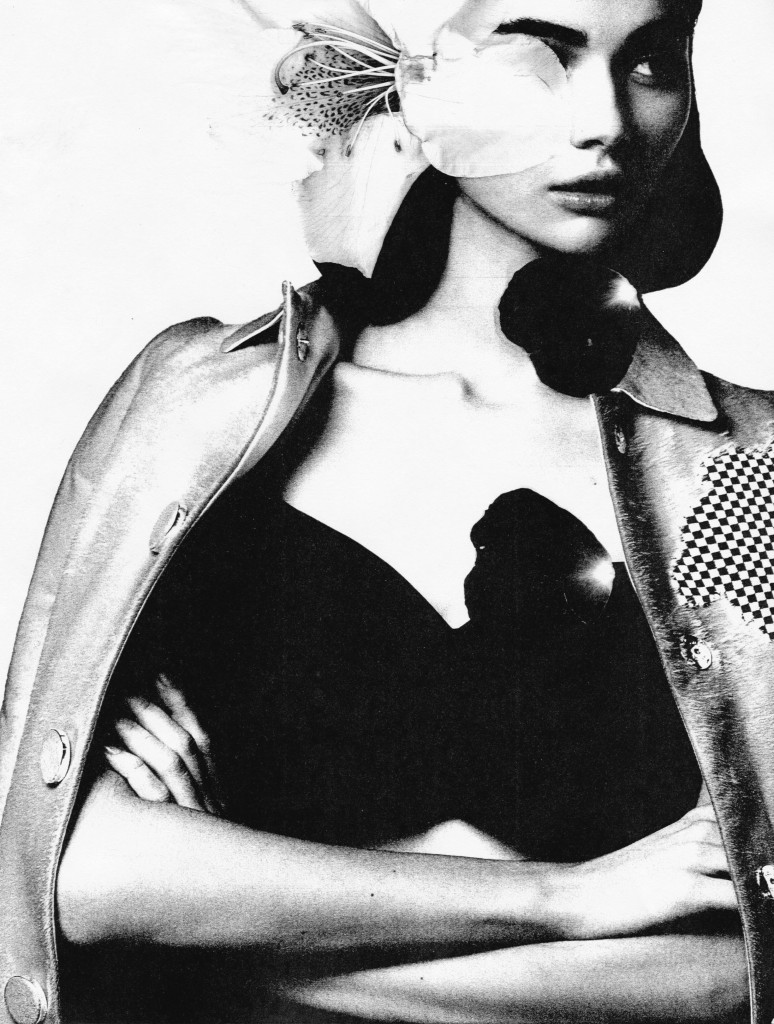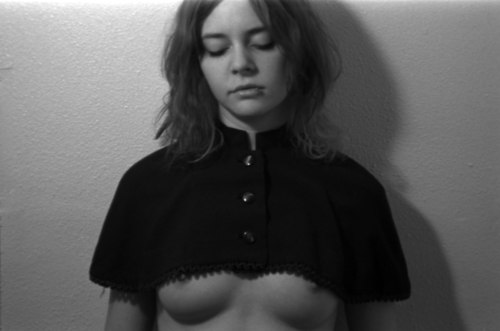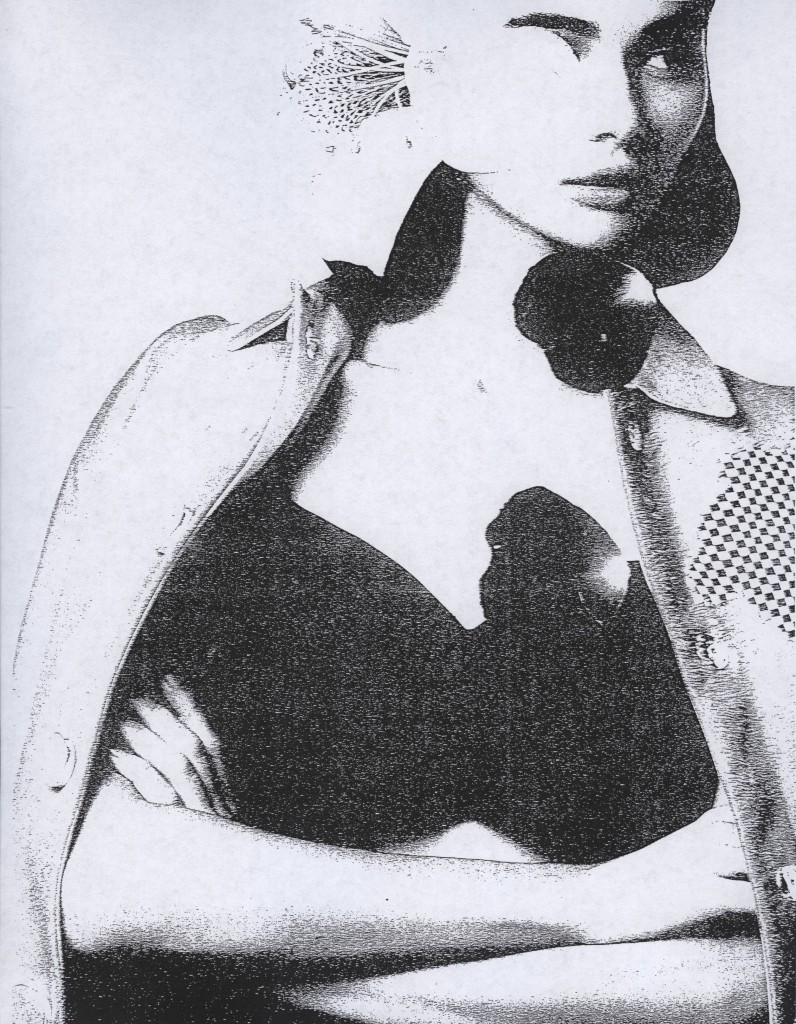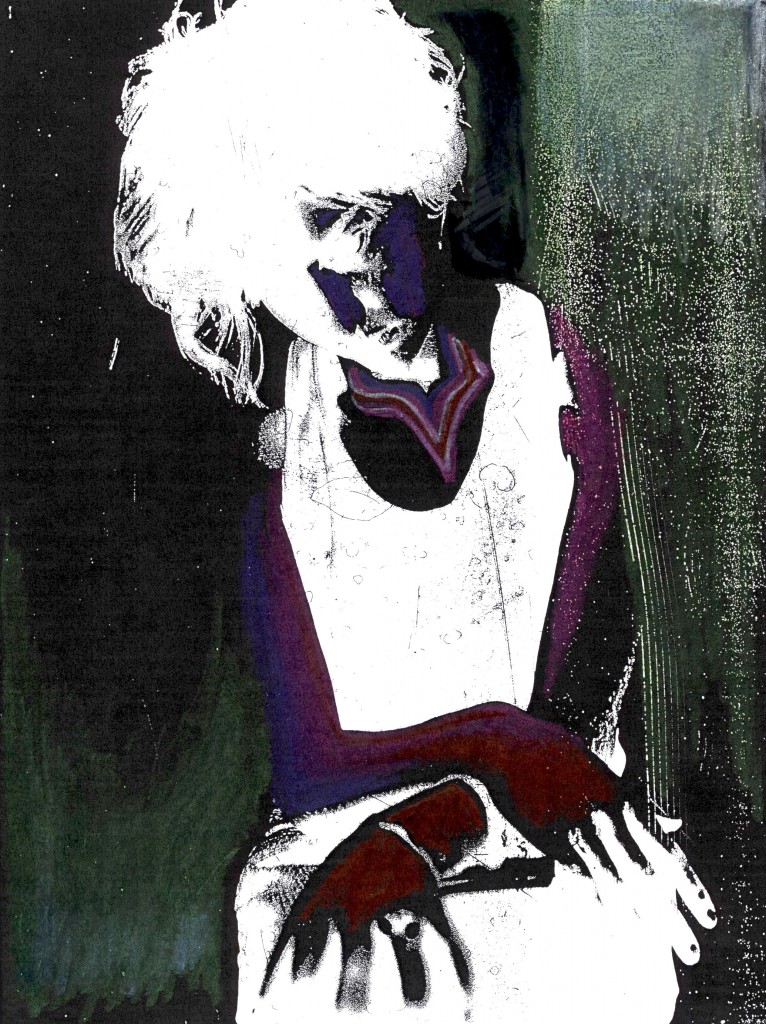Among the deceased belongings that they leave behind are clothes. These possessions are usually passed down or sold. Garments seem so intimate, worn against the life filled body and move through the day to day life with the soul. They are an expression of style and shell for the body and soul. Shifting the cape’s context to an image I doubt the wearer ever imagined yet keeping intact itss origin through black and white nostalgic photography creates a synthesis and discourse that I feel is common in things left behind.
Thea’s Cape
Among the deceased belongings that they leave behind are clothes. These possessions are usually passed down or sold. Garments seem so intimate, worn against the life filled body and move through the day to day life with the soul. They are an expression of style and shell for the body and soul. Shifting the cape’s context to an image I doubt the wearer ever imagined yet keeping intact itss origin through black and white nostalgic photography creates a synthesis and discourse that I feel is common in things left behind.
Thea’s Cape
Among the deceased belongings that they leave behind are clothes. These possessions are usually passed down or sold. Garments seem so intimate, worn against the life filled body and move through the day to day life with the soul. They are an expression of style and shell for the body and soul. Shifting the cape’s context to an image I doubt the wearer ever imagined yet keeping intact itss origin through black and white nostalgic photography creates a synthesis and discourse that I feel is common in things left behind.
Thea’s Cape
Among the deceased belongings that they leave behind are clothes. These possessions are usually passed down or sold. Garments seem so intimate, worn against the life filled body and move through the day to day life with the soul. They are an expression of style and shell for the body and soul. Shifting the cape’s context to an image I doubt the wearer ever imagined yet keeping intact itss origin through black and white nostalgic photography creates a synthesis and discourse that I feel is common in things left behind.
Reproduction Art
Lately, what Ive been into is a culmination of many discussions with friends on reproduction of mediums in art and music. In a meeting with Stephanie Kozick, we discussed what happens when putting objects straight down onto a copy machine beneath a piece of paper, e.g. a flower; the result is crystal clear. Listening to a musician friend’s experimentation with re-recording his band from VHS tape to a digital format, the sound was transformed into a more low-fi, distorted incarnation of it’s clean, original form. Similarly, when you run images through a copy machine over and over again, it becomes distorted and affects the composition in a faded, ghoulish way like this: 
$4 in quarters and 3 copy machines later, these images took on the look of black and white versions of early century cathedral iconography. Reflecting on this concept, Ive found that the idea of repetitious reproduction in art is not a far cry from human biology: our DNA replicates, changes, and perpetuates our genes when we reproduce.
After playing with copy machines, I got the idea to add color with Prismacolor pencils, in order to make heavy pigment marks on both black and white without compromising the paper.
Reproduction Art
Lately, what Ive been into is a culmination of many discussions with friends on reproduction of mediums in art and music. In a meeting with Stephanie Kozick, we discussed what happens when putting objects straight down onto a copy machine beneath a piece of paper, e.g. a flower; the result is crystal clear. Listening to a musician friend’s experimentation with re-recording his band from VHS tape to a digital format, the sound was transformed into a more low-fi, distorted incarnation of it’s clean, original form. Similarly, when you run images through a copy machine over and over again, it becomes distorted and affects the composition in a faded, ghoulish way like this: 
$4 in quarters and 3 copy machines later, these images took on the look of black and white versions of early century cathedral iconography. Reflecting on this concept, Ive found that the idea of repetitious reproduction in art is not a far cry from human biology: our DNA replicates, changes, and perpetuates our genes when we reproduce.
After playing with copy machines, I got the idea to add color with Prismacolor pencils, in order to make heavy pigment marks on both black and white without compromising the paper.
Reproduction Art
Lately, what Ive been into is a culmination of many discussions with friends on reproduction of mediums in art and music. In a meeting with Stephanie Kozick, we discussed what happens when putting objects straight down onto a copy machine beneath a piece of paper, e.g. a flower; the result is crystal clear. Listening to a musician friend’s experimentation with re-recording his band from VHS tape to a digital format, the sound was transformed into a more low-fi, distorted incarnation of it’s clean, original form. Similarly, when you run images through a copy machine over and over again, it becomes distorted and affects the composition in a faded, ghoulish way like this: 
$4 in quarters and 3 copy machines later, these images took on the look of black and white versions of early century cathedral iconography. Reflecting on this concept, Ive found that the idea of repetitious reproduction in art is not a far cry from human biology: our DNA replicates, changes, and perpetuates our genes when we reproduce.
After playing with copy machines, I got the idea to add color with Prismacolor pencils, in order to make heavy pigment marks on both black and white without compromising the paper.
Reproduction Art
Lately, what Ive been into is a culmination of many discussions with friends on reproduction of mediums in art and music. In a meeting with Stephanie Kozick, we discussed what happens when putting objects straight down onto a copy machine beneath a piece of paper, e.g. a flower; the result is crystal clear. Listening to a musician friend’s experimentation with re-recording his band from VHS tape to a digital format, the sound was transformed into a more low-fi, distorted incarnation of it’s clean, original form. Similarly, when you run images through a copy machine over and over again, it becomes distorted and affects the composition in a faded, ghoulish way like this: 
$4 in quarters and 3 copy machines later, these images took on the look of black and white versions of early century cathedral iconography. Reflecting on this concept, Ive found that the idea of repetitious reproduction in art is not a far cry from human biology: our DNA replicates, changes, and perpetuates our genes when we reproduce.
After playing with copy machines, I got the idea to add color with Prismacolor pencils, in order to make heavy pigment marks on both black and white without compromising the paper.
Reproduction Art
Lately, what Ive been into is a culmination of many discussions with friends on reproduction of mediums in art and music. In a meeting with Stephanie Kozick, we discussed what happens when putting objects straight down onto a copy machine beneath a piece of paper, e.g. a flower; the result is crystal clear. Listening to a musician friend’s experimentation with re-recording his band from VHS tape to a digital format, the sound was transformed into a more low-fi, distorted incarnation of it’s clean, original form. Similarly, when you run images through a copy machine over and over again, it becomes distorted and affects the composition in a faded, ghoulish way like this: 
$4 in quarters and 3 copy machines later, these images took on the look of black and white versions of early century cathedral iconography. Reflecting on this concept, Ive found that the idea of repetitious reproduction in art is not a far cry from human biology: our DNA replicates, changes, and perpetuates our genes when we reproduce.
After playing with copy machines, I got the idea to add color with Prismacolor pencils, in order to make heavy pigment marks on both black and white without compromising the paper.
Reproduction Art
Lately, what Ive been into is a culmination of many discussions with friends on reproduction of mediums in art and music. In a meeting with Stephanie Kozick, we discussed what happens when putting objects straight down onto a copy machine beneath a piece of paper, e.g. a flower; the result is crystal clear. Listening to a musician friend’s experimentation with re-recording his band from VHS tape to a digital format, the sound was transformed into a more low-fi, distorted incarnation of it’s clean, original form. Similarly, when you run images through a copy machine over and over again, it becomes distorted and affects the composition in a faded, ghoulish way like this: 
$4 in quarters and 3 copy machines later, these images took on the look of black and white versions of early century cathedral iconography. Reflecting on this concept, Ive found that the idea of repetitious reproduction in art is not a far cry from human biology: our DNA replicates, changes, and perpetuates our genes when we reproduce.
After playing with copy machines, I got the idea to add color with Prismacolor pencils, in order to make heavy pigment marks on both black and white without compromising the paper.



